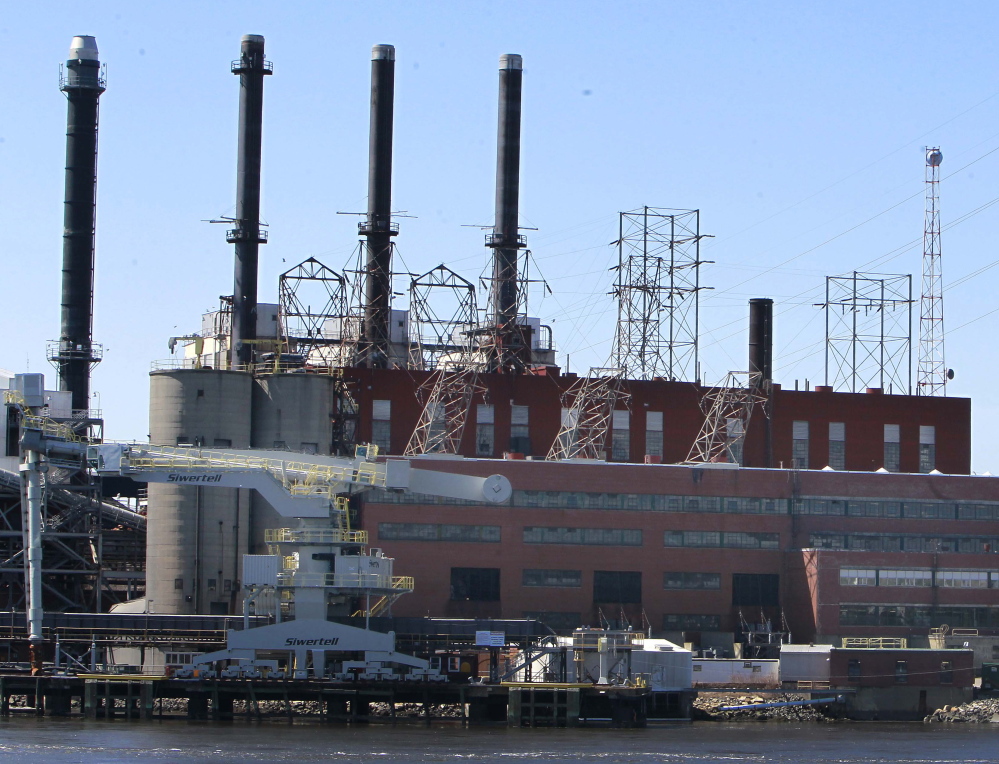CONCORD, N.H. — A recommendation that New Hampshire’s largest utility get rid of its power plants and pass the costs to all its ratepayers was met with skepticism this week by an advocate for consumers who worries the region’s volatile and pricey energy market makes it a bad time to take generators offline.
Staff of the Public Utilities Commission said an analysis shows that in the long term, customers of Public Service Company of New Hampshire would be better off if the company divested itself of its three fossil fuel plants and nine hydroelectric generators. The report issued this week says ultimately, PSNH will be charging more for power than its competitors and passing the higher rates on to a shrinking number of customers who buy their power from PSNH as people look for cheaper options.
But Marc Brown, president of the New England Ratepayers’ Association, notes that with the Vermont Yankee nuclear plant and Salem Harbor Power Station in Massachusetts scheduled to close, he said it’s the wrong time to even consider shutting plants.
“If PSNH was forced to divest, then you’re pulling off more of PSNH assets, then you’re creating more of a shortage in capacity,” Brown said.
The PUC report says the plants have a total value of some $660 million but would probably fetch about $225 million on the open market, leaving $435 million in so-called stranded costs to be paid by consumers. Those numbers could change depending on how much the company can get back from its $420 million investment in a scrubber designed to reduce pollution.
Currently, 75 percent of PSNH’s customers both buy and have their power delivered by the utility; the other 25 percent buy their power from a cheaper source and have it delivered by PSNH. The report predicts more customers would seek cheaper power sources, putting more pressure on the remaining PSNH customers to pay the stranded costs.
A spokesman for the company said this winter, when frigid temperatures pushed energy prices to historic highs, is a good example of why more — not fewer — power plants are needed.
“We see the existence of these power plants in terms of value and benefit to New Hampshire is more stark than ever,” said Martin Murray. “And what people really need to keep their eye on is that tougher times are ahead.”
Murray calls the company’s 12 power plants an insurance policy against wild price spikes, and said divestment would only take away the insurance but still leave consumers paying for them.
Dan Dolan, president of the New England Power Generators Association, said divestment would benefit consumers because it would put the power plants back in a competitive market. He also said divestment doesn’t automatically mean plant closures.
“I think the fear-mongering (that divestiture means) plant closures is a red herring and is irresponsible,” Dolan said. “I’m in the business of keeping plants open, not closing them. All I want to do is change the structure.”
Copy the Story LinkSend questions/comments to the editors.



Success. Please wait for the page to reload. If the page does not reload within 5 seconds, please refresh the page.
Enter your email and password to access comments.
Hi, to comment on stories you must . This profile is in addition to your subscription and website login.
Already have a commenting profile? .
Invalid username/password.
Please check your email to confirm and complete your registration.
Only subscribers are eligible to post comments. Please subscribe or login first for digital access. Here’s why.
Use the form below to reset your password. When you've submitted your account email, we will send an email with a reset code.